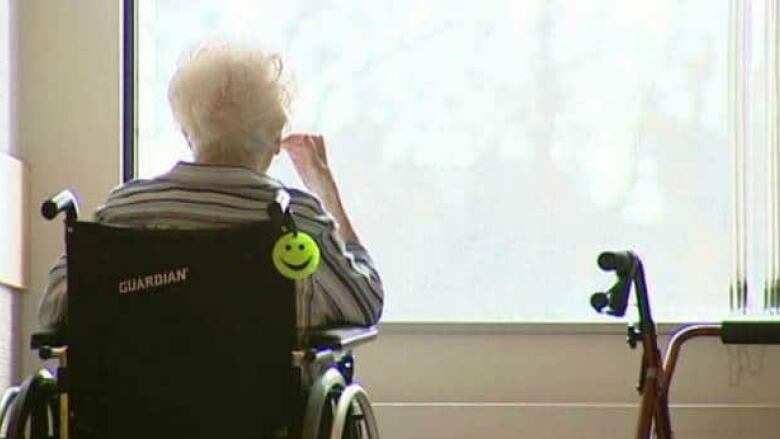Fire drills at Quebec seniors' homes 'cause for concern,' fire chief says
Seniors' housing association president says practice evacuations are traumatic for residents

Data on fire drills at seniors'homes in several Quebec municipalities revealthere's still a lot of work to be done to ensure elderly residents know how to get out safelyshould a fire break out.
It's been two years since the fire at the senior citizens' residence inL'Isle-Verte, Que.which resultedin the death of 32 residents.
Data obtained through an access-to-information requestshows that inLvis, for example, 13of the30 fire drills held between June 2013 and October 2015 did not respect regulations.
- L'Isle-Verte fire: Quebec prosecutor won't lay charges
- Quebec announces new sprinkler requirements for seniors' residences
Some of the issues included residents failing to leavetheir rooms, not hearing the alarm or not taking the nearest exit.
Manyresidences inLviswent over the mandated 11 minutesto evacuate a residence completely. One took 29 minutes before it cancelled the drill.
Mandatory fire drills
According to provincial regulations, the owners of seniors' homesmust complete at least two fire drills per year. The presence of firefighters is not mandatory.
ButSylvain Dufresne, one of the vice-presidents of theQuebec Association of Fire Chiefs, says even after theL'Isle-Verte tragedy, owners are hesitant to complete the drills.
"I'm not convinced that if firefighters didn't follow up with homes, that [drills] would happen in a systematic way," he said.
"It is a cause for concern. We know that a certain group of ownerswho represent seniors'homes told their employees not to do the drills, claiming it was dangerous for the residents."
Reassuring residents
According toYves Desjardins, the president of agroup representing privateseniors' residences in Quebec, the mandated fire drills can be traumatic for seniors.
We don't think [fire drillsare]essential.- YvesDesjardins, president of Quebec Private Seniors Housing Association
"We don't think it is essential," he said.
"Right now, it's important to educate the residents. But we don't think makingthem run up the stairs is a good idea. After a drill, we have to reassure residents for two or three days that the home is safe, and there is no danger."
Fire drill results
Lvis:Out of the30 fire drills held between June 2013 and October 2015, 13 did not respect the regulations.
- A fire drill atRsidenceLes Marronniers inAugust 2014 was cancelled after 29 minutes. A total of 46 residents remained inside the home at that time.
- A drill atRsidence Notre-Dame in September 2014 failed safety regulations for several reasons. The front door did not automatically unlock when the fire alarm was activated, residents weren't directed to the nearest exits and the fire door in the dining room was not closed due to decorations in the way.
Laval: In 2015, seven private seniors' homes in Laval failed their last fire drill.
-
A drill atLes Jardins Le Renoir in October 2015 failed to evacuate all residents. The report notes the drill was not done calmly and the speaker announcement calling for a partial evacuation contradicted the telephone message calling for a full evacuation.
-
Le Manoir Chomedey had its permit revoked at the end of Aprilafterfailing to comply with fire safety measures. A total of 18 pages of violations have been filed against the home. Some issues included the fire alarm not being loud enough, andseveral smoke detectors not functioning.
Granby:It took seniors 17 minutes to evacuate a seniors' home during a drill in July 2014.During the same drill, only 61 of the 90 residentsleft. Eight seniors remained in their rooms, and 13 were absent.
With files from Radio-Canada's Cathy Senay, Marie-Hlne Rousseau and Jean-Philippe Robillard












_(720p).jpg)


 OFFICIAL HD MUSIC VIDEO.jpg)
.jpg)



























































































